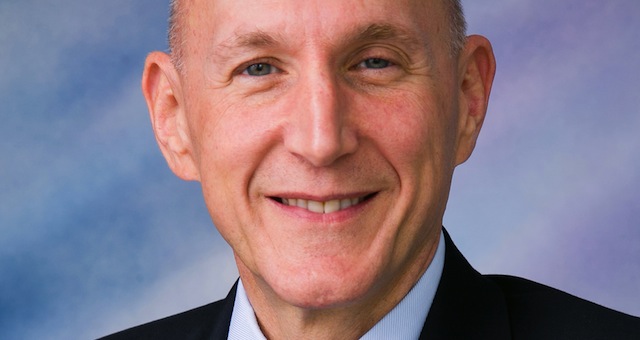By James Wilkinson in Hong Kong
AccorHotels’ Chairman and CEO of Asia Pacific, Michael Issenberg, says the proposed acquisition of Mantra Group is a “big bet on Australia” by the company in a market that continues to see strong growth.
Speaking exclusively to HM in Hong Kong during the company’s recent Asia-Pacific executive leadership meeting which coincided with HICAP, Issenberg said the nation had been a solid performer for the group and the proposed Mantra acquisition would further strengthen AccorHotels’ position in the country.
“For Accor, it is a big bet on Australia in particular, but as you know we have always found Australia to be a great market for us and we have been very successful there and we continue to focus on it and we think [the acquisition] will be beneficial to us and we certainly believe in the market in Australia,” he said.
AccorHotels has been growing solidly across Australia over the past decade and Issenberg said the Mantra acquisition only adds to that strength.
“And that’s where the Mantra acquisition for us is great because it is remarkable how complimentary it is… so we are really excited about that,” he said.
“The Pacific [region] has really gone gangbusters for us and there is a lot of activity there and besides the major acquisition [of Mantra], it has been the busiest it’s ever been.
“Even compared to the pre-Sydney Olympics days, this has been the most prolific development activity we have seen in the Pacific. So, from a development perspective it’s been great,” Issenberg told HM.
On October 12, Mantra Group’s board revealed it approved a proposal from AccorHotels to acquire the company for over AUD$1.3 billion, a move that would see the Australia’s largest accommodation group take over the second biggest.
As part of the deal – which will need to be approved by Mantra’s shareholders in early 2018 – would see AccorHotels add 127 hotels to its network across Australia, New Zealand, Indonesia and the United States (Hawaii), taking its network to over 370 hotels in the Australasia region.
Accor’s Australian footprint would grow dramatically under the deal, but Issenberg said there was confidence in the performance of the market.
“Australia still remains predominantly a domestic market, it has a good and consistent economy and the real ‘cream’ if you will is going to be the growth in inbound tourism, which we also believe has a great future,” he said.
Issenberg said while there were some hurdles that needed to be overcome prior to AccorHotels taking over Mantra – such as the shareholder vote and regulatory approvals – there was excitement within the company about the acquisition.
“Absolutely… there is a high level of excitement,” he told HM. “You don’t make a transaction like that every day.
“We acquired Mirvac five years ago, but this is more than double the size of Mirvac, so it is very big.
“In fact, it would have been more challenging to acquire Mantra if we hadn’t acquired Mirvac [Hotels] because that did give us the confidence in a number of segments, including MLR [Management Letting Rights].
“Compared to our international competitors, that’s an advantage particularly in the Australian market,” Issenberg said.
A number of hotel chains did not pursue the opportunity to acquire Mantra given some of the segments the company operates in – such as MLRs – and Issenberg said Accor’s expertise in that area and others would also prove to be an advantage not just with the Mantra deal, but also going forward.
“Not just in Australia, but in general growth tends to feed on growth for exactly that reason,” he told HM.
“We can demonstrate the stronger we are in a market, the better we perform for a whole variety of reasons. That’s when growth feeds on growth because you develop expertise in terms of human capital, your systems, your ability to do more marketing and it feeds upon itself.
“At the end of the day, owners only choose us if we can deliver the best return and we believe our growth and scale enables us to do that.”
The Mantra acquisition aside, Asia-Pacific continues to produce massive numbers for AccorHotels with Issenberg revealing 50 per cent of the development pipeline globally is coming from the region and the company had come a long way since its debut in the region over 35 years ago.
“We had our first hotel in Singapore in 1982 and we had our 100th hotel in Asia-Pacific in 1996,” he said. “And then it was our 300th hotel in 2006. Now, ten years later, we have just passed 800 hotels.
“So that’s 500 hotels we have added in the last 10 years and the growth continues to accelerate.
“We are not counting Mantra in the numbers for next year yet because we have some hurdles to get through and hopefully that will come to fruition, but after opening 120 hotels this year we anticipate doing that next year excluding Mantra so it really has been an extraordinary ride.”
While AccorHotels was adding 120 properties a year to its network, Issenberg said the company was still being selective before signing any new project.
“We can’t just focus on growth for growth’s sake,” he told HM. “We are always looking for good projects and good partners.
“Just taking on a hotel for the sake of it and if it’s not going to be successful, believe me you don’t want to do it because if you sign the wrong brand in the wrong location then the amount of work you will need to make it successful is disproportionate.
“You need to do the right project with the right brand in the right location,” Issenberg said.

